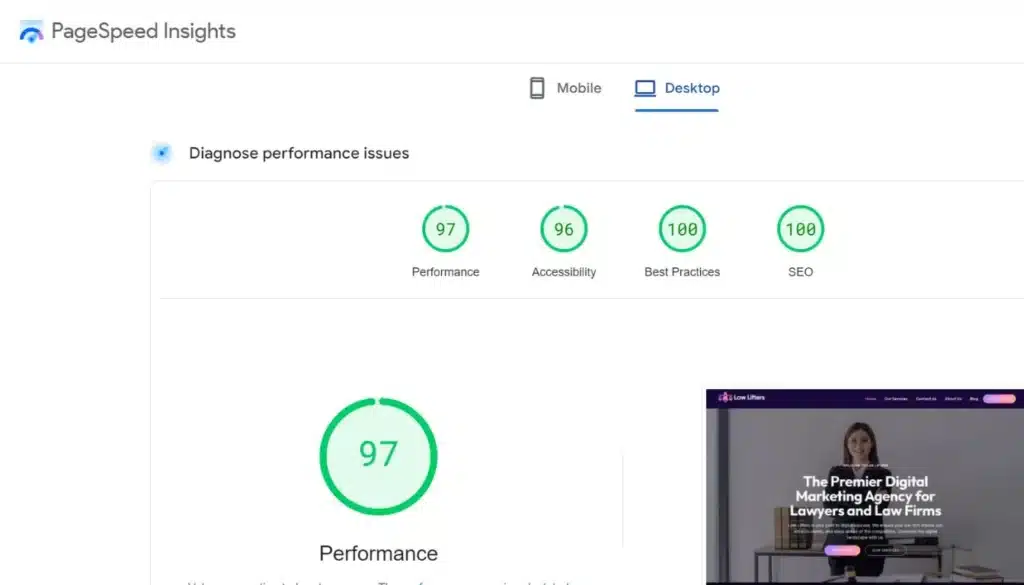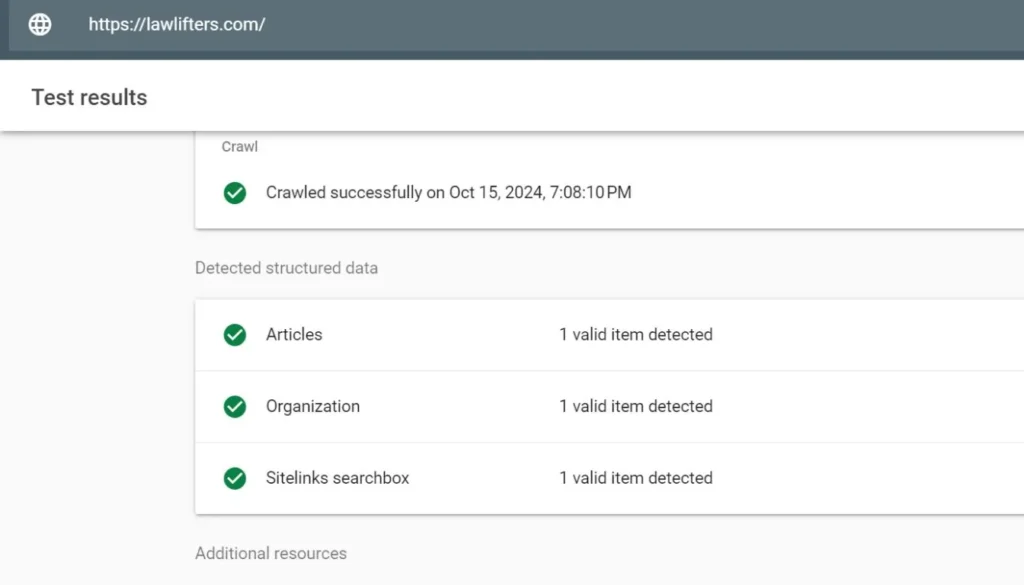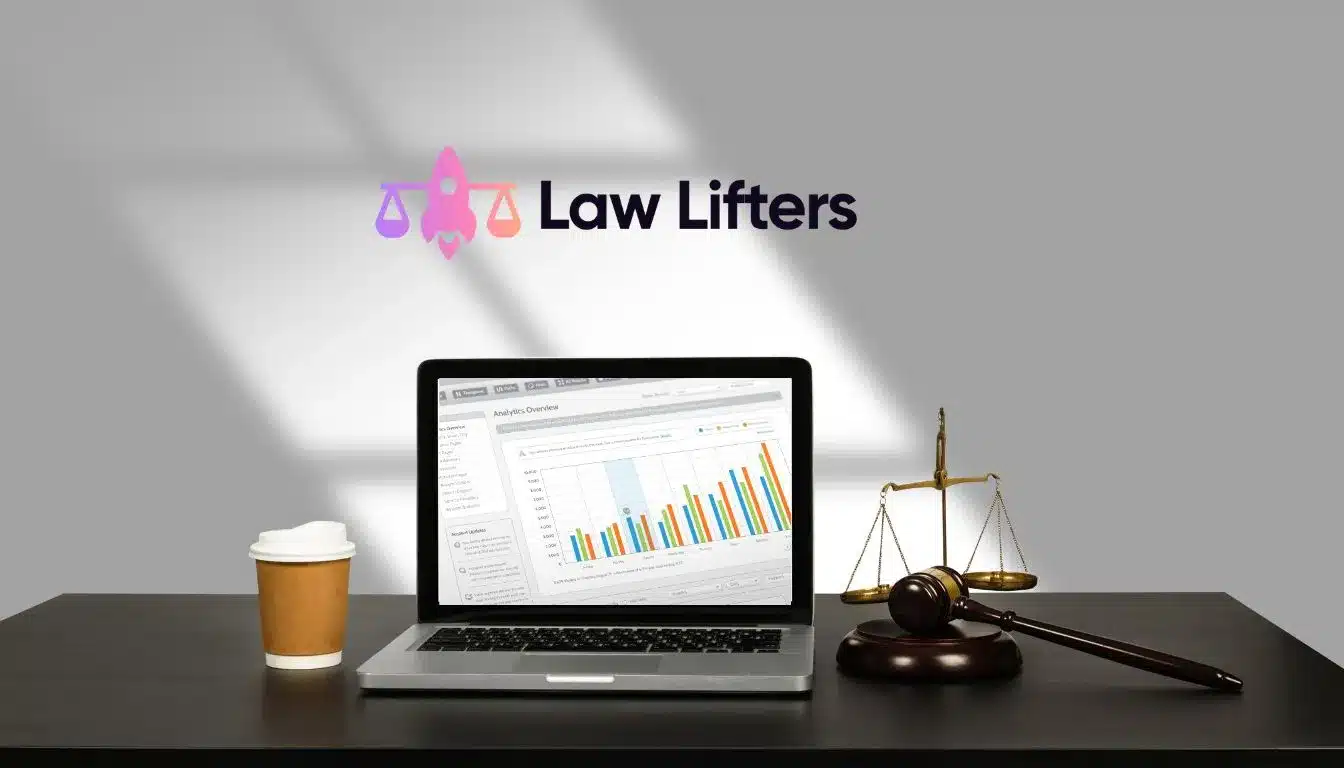A strong online presence is necessary in this competitive world of law. Potential clients who need legal services search on Google every day. If you know how to optimize your website through both on-site and off-site SEO for law firms then it will make a huge difference in attracting new business.
But what exactly do these terms mean?
Mastering these elements is not just beneficial it is necessary for law firms that are serious about growing their digital footprint.
It does not matter whether you are an established firm or a solo practitioner, implementing effective attorney SEO practices will grow your practice above the competition.
Ready to dive into the details of each element? Let’s explore actionable SEO strategies in this law firm SEO guide customized just for lawyers or attorneys like you!
Connection between On-Site and Off-Site SEO
On-site and off-site SEO for law firms are two sides of the same coin. Both work together to enhance your online visibility.
On-site SEO focuses on optimizing your website’s content and structure and off-site SEO builds credibility through external factors like backlinks and social signals.
A well-optimized site brings visitors by providing valuable information and a seamless user experience.
A strong off-site strategy can drive traffic back to your website. For instance, if a respected legal directory links to you or if an influential blogger mentions your firm in their articles.
Together, these strategies create a powerful synergy that pushes law firms toward greater success online.
On-Site SEO for Attorneys: Creating a Great User Experience
Law firms that are aiming for a strong online presence should create a great user experience. On-site SEO plays an integral role in achieving this.
A well-structured website keeps visitors engaged. Clear navigation helps potential clients find information easily and reduces bounce rates.
Your content should be relevant and informative, addressing the specific legal concerns of your audience.
Elements of On-Page SEO for Law Firms
On-page SEO is critical for law firms looking to enhance their online presence. It focuses on optimizing individual web pages to rank higher and earn more relevant traffic.
Visual Appearance

Visual appearance and website design play an important role in how clients perceive your law firm’s website. A clean, professional design implants trust and credibility.
Colors, fonts, and images should align with your law firm identity. Consistency across all pages creates a cohesive experience that keeps users engaged.
Remember, first impressions matter immensely in the legal field. An aesthetically pleasing site can make potential clients more inclined to reach out for services.
Consider mobile responsive website design as well; many users will access your site via smartphones or tablets. Ensuring that visual elements adapt seamlessly across devices is essential for user satisfaction.
Site Structure

A well-organized site structure is important for law firms trying to enhance their online presence. It not only guides users through your website but also helps search engines understand the content hierarchy.
Start by creating a clear and easy navigation menu. This allows visitors to find information easily and quickly. Use important categories and subcategories that reflect your practice areas.
Consider implementing breadcrumbs. They serve as a trail, showing users where they are within your site’s structure. This feature improves user experience while aiding SEO.
Maintain a sitemap that outlines all major pages on your site.
Keyword Research and Content
Keyword research is the backbone of successful SEO for law firms. It involves identifying the right keywords and the search terms potential clients are using when searching for legal services.
To start, use tools like Google Keyword Planner or SEMrush to uncover relevant keywords in your practice area. Focus on long-tail keywords, as they often yield higher conversion rates and attract more qualified leads.
Once you have a list of targeted keywords, next is legal content optimization. Integrate these keywords naturally into your law firm website content. This includes blog posts, service pages, and FAQs tailored specifically to your audience’s needs.
Creating high-quality content around these keywords improves search rankings and establishes authority in your niche.
Title Tags & Meta Descriptions
Title tags and Meta descriptions play a crucial role in SEO for lawyers. They are the first impression potential clients have of your law firm in search engine results.
Crafting catchy title tags that include relevant keywords can significantly improve click-through rates. Aim for around 60 characters to ensure it displays fully on search engines.
Meta descriptions, though not directly impacting search engine rankings, provide context about the content.
A well-written Meta description, ideally between 150—160 characters, can guide prospective clients by highlighting key services or unique selling points of your practice.
Internal Linking and External Linking
Internal linking is a key element of effective on-site SEO for law firms. It allows you to guide visitors through your website, making it easier for them to find relevant information.
By connecting related articles or service pages, you enhance user experience while improving site structure.
External links play a different but equally important role. Linking to authoritative sources can enrich your content and build credibility.
This strategy helps search engines see your site as trustworthy and well-researched.
Website Speed and Performance

Site speed is vital for any law firm’s online presence and legal SEO. A fast-loading legal website keeps visitors engaged and reduces bounce rates. When potential clients find your site, they expect quick access to information.
If your pages lag, they may leave and choose a competitor instead.
Performance isn’t just about speed; it’s also related to how well the site functions on various devices.
With many users searching on mobile, ensure that your site’s design adapts smoothly across screens.
How long should it take for your law firm’s website to load?
Ideally, your law firm’s website should load in under three seconds. This threshold is important because visitors tend to lose interest if a page takes too long.
Google considers site speed in its ranking algorithm.
A slow website can negatively impact your position on search engine results pages (SERPs).
How to Check Your Website Speed?
You can use online tools like Google PageSpeed Insights or GTmetrix. These platforms provide detailed insights into how quickly your pages load and offer recommendations for improvements.
Simply enter your URL into the tool, and in seconds, you’ll receive a score along with specific metrics about loading times.
Look for factors such as First Contentful Paint (FCP) and Time to Interactive (TTI), which indicate user experience quality.
How Can I Improve Page Speed?
Improving page speed is essential for user experience and SEO.
- Start by optimizing images.
- Use compressed formats like Webp to reduce their file size without sacrificing quality.
- Minifying CSS, JavaScript, and HTML can also help.
- Remove unnecessary characters, spaces, and comments from your code to streamline loading times.
- Consider implementing lazy loading techniques for images and videos. This ensures that media files only load when they are visible on the user’s screen.
- Utilizing a Content Delivery Network (CDN) can distribute your site’s content efficiently across various locations. This reduces latency and speeds up access time for users around the globe.
Implementing Schema Markup

Schema markup is a powerful tool for enhancing your law firm’s online presence. It helps search engines understand the context of your content better. This can lead to improved visibility in organic search results.
By using structured data, you can provide detailed information about your services, location, and even client reviews.
This added clarity not only assists search engines but also enriches the user experience.
What Is Legal Service Schema Code, and Why Does it Matter?
Legal service schema code is a specific type of structured data markup. It helps search engines understand the content and context of your law firm’s website.
By implementing this code, you enhance your site’s visibility in search results.
Search engines can display rich snippets that provide additional information about your services. This may include details like practice areas, contact information, and location.
Off-Page SEO for Lawyers
Off-page SEO for lawyers focuses on building authority and trust outside your website. This is important for enhancing visibility in search engines.
Client Reviews & Legal Directories Citations

Client reviews serve as powerful testimonials that build trust and credibility for law firms. When potential clients read about positive experiences, they feel more confident in choosing your services.
Encouraging satisfied clients to leave reviews on platforms like Google My Business or Yelp is essential.
Legal directories are another key component of off-site SEO for lawyers. Being listed in reputable online directories helps enhance your online visibility while improving search rankings.
Websites such as Avvo, FindLaw, and Justia not only provide a platform for client reviews but also connect you with individuals actively seeking legal assistance.
Social Media Engagement
Social media engagement is a powerful tool for law firms.
It allows attorneys to connect directly with potential clients in an informal setting, fostering trust and credibility.
Regular posting can keep your audience informed about legal updates and firm news. Sharing valuable insights into various legal topics helps position you as an expert in your field.
Link Building
Link building is an important aspect of off-site SEO for law firms. It involves acquiring hyperlinks from other websites to your own, which signals credibility and authority to search engines.
Quality matters more than quantity in link building. Aim for backlinks from reputable legal sites or local businesses. This boosts your site’s trustworthiness and enhances its ranking potential.
Guest Blogging & Community Participation
Guest blogging serves as a powerful tool for law firms to enhance their online presence. It allows lawyers to share expertise on reputable platforms while driving traffic back to their websites.
Engaging with community initiatives is equally vital. Participating in local events or legal workshops cultivates relationships within the community, boosting visibility and trust.
Influencer Partnerships & PR
Influencer partnerships and PR can be impactful tools for law firms looking to enhance their online presence.
Collaborating with respected figures in the legal field or allied industries can open doors to new audiences.
Benefiting from these relationships, attorneys can gain credibility and visibility. Influencers often have a loyal following that trusts their recommendations.
When they endorse your services, it adds significant weight to your brand.
Local SEO: Targeting the Local Community

Local SEO is crucial for law firms aiming to connect with their community. By optimizing your online presence, you can attract clients who are searching for legal services nearby.
This means tailoring your website and content to reflect local keywords and phrases.
Claiming your Google My Business listing is vital. It allows potential clients to find important details like your address, phone number, and hours of operation easily.
Regularly updating this information ensures accuracy and boosts visibility in local searches.
Tips on Expanding Your Law Firm’s Digital Presence
Expanding your law firm’s digital presence involves more than just having a website. It’s about creating a comprehensive online identity that resonates with potential clients.
Start by optimizing your social media profiles. Platforms like LinkedIn, Facebook, and Instagram can showcase your expertise and build trust with followers.
Consider using local online communities. Participate in discussions on neighborhood forums or legal advice sites relevant to your practice area.
Utilize email marketing as well. Regular newsletters can keep former and potential clients informed about updates, services, or new blog posts related to their needs.
Explore partnerships with other professionals in complementary fields.
Key Takeaways from this Guide
- Both on-site and off-site SEO are essential for a law firm’s digital marketing strategy to grow its online presence.
- Creating a great user experience through effective on-page SEO is paramount.
- Incorporate title tags and Meta descriptions that accurately reflect your services.
- A well-structured internal linking system enhances user engagement, keeping visitors on your site longer.
- Site speed must be noticed; it impacts everything from bounce rates to ranking positions.
- Schema markup adds another layer of sophistication by helping search engines better understand your legal services.
- Off-page SEO strengthens authority through client reviews, active social media engagement, and strategic link building.
By integrating these strategies effectively you position yourself as a leading choice in a competitive landscape.
FAQ's
Both are essential and work together to enhance your online presence.
Yes, SEO is crucial for law firms to attract potential clients and improve visibility.
On-page SEO optimizes website content, while off-page SEO focuses on building credibility through external links.
On-site SEO refers to optimizing your website’s structure and content, while off-site SEO involves external factors like backlinks and social signals.



